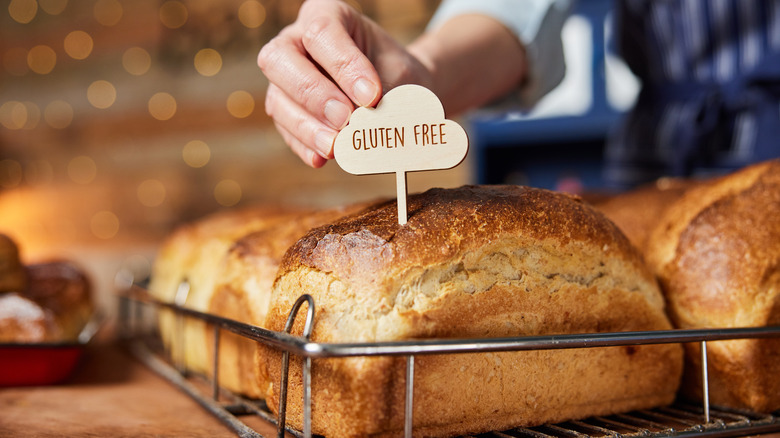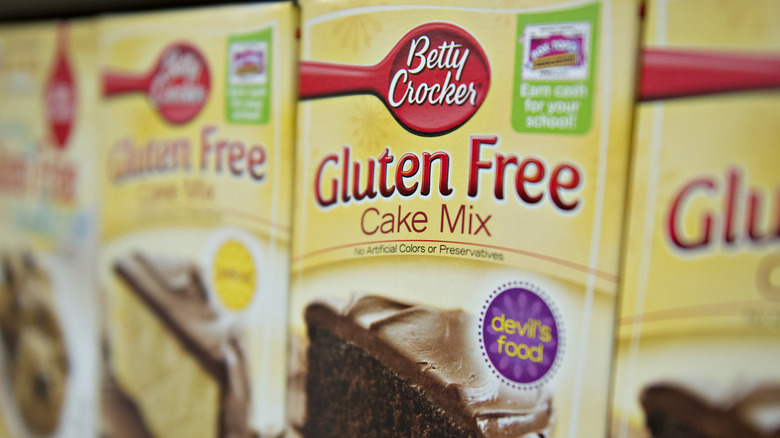Is Gluten Actually Bad For You If You Don't Have Celiac Disease?
Gluten-free options are seemingly popping everywhere these days. Walk into most sit-down restaurants and you have the option of a gluten-free hamburger bun or bread, and if the restaurant doesn't offer specifically gluten-free items, they likely won't bat an eye if you request your menu item sans gluten-filled ingredients. While this is a great development for those suffering from celiac disease, meaning gluten triggers a sometimes-dangerous immune reaction in their bodies, gluten-free has become trendy among non-celiac sufferers as well. But are there actually any health benefits to avoiding gluten if you don't have celiac disease?
According to a Harvard Health Publishing article, not really. The piece notes that there's no "compelling evidence" that a gluten-free diet will improve your health or prevent disease. The article credits several non-health-related factors for the gluten-free fad, including savvy marketing, celebrity endorsements, and anecdotes. The only time a gluten-free diet may help you is if you have confirmed celiac disease or if you notice symptoms that may mean you're gluten-sensitive — bloating, diarrhea, and cramps, among others — only after eating gluten-containing foods.
Could gluten-free foods actually be bad for you?
For all the folks that can tolerate and digest gluten just fine, switching to a gluten-free diet could actually cause more harm than good. Harvard Health Publishing was careful to note that gluten-free foods are typically less fortified, containing fewer nutrients and minerals, and less fiber. And these foods aren't just lacking the good stuff — they're also often packed with more sugar and fat than their gluten-containing counterparts. Gluten-free diets have even been linked to obesity. As an example, let's take a look at two popular bread brands.
Wonder brand's Classic White Bread contains 140 calories per two slices, with 1.5 grams of fat, 180 milligrams of sodium, 29 grams of carbs, and 2 grams of fiber. It's fortified with a decent percentage of your daily values of calcium, thiamin, collate, iron, and Vitamin D, among other minerals and nutrients. Schar's Artisan Baker White Bread, on the other hand, contains 150 calories per two slices, with 2 grams of fat, 210 milligrams of sodium, 32 grams of carbs, and 4 grams of sugar. It has no Vitamin D, and only 2% of your daily calcium and 4% of your daily iron intake, compared to Wonder's 30% and 15%, respectively. So, unless you're dealing with a true gluten sensitivity, you're best to stick with good ol' fashioned gluten.

